Minutes before the blasts masked gunmen launched a daring raid on the health ministry, trapping about 2,000 people inside the building.
BAGHDAD: Six car bombs killed 160 people in a Shi'ite stronghold on Thursday in the bloodiest attack in Baghdad since the U.S. invasion and the authorities imposed an indefinite curfew on a city fearful of a sectarian civil war.
Leaders from all main communities, including Shi'ite Prime Minister Nuri al-Maliki and the Sunni Vice President, made a televised appeal for calm, a step last taken in February when the bombing of a major Shi'ite shrine, blamed on al Qaeda, launched a wave of sectarian bloodshed that has not abated.
"We call for people to act responsibly and to stand together to calm the situation," a joint statement read.
A further 257 people were wounded in the series of blasts in the capital's Sadr City slum, police said.
The blasts came at the same time as gunmen surrounded and fired on the Shi'ite-run Health Ministry in one of the boldest daylight assaults by militants in Baghdad. Mortars later crashed down on a nearby Sunni enclave in an apparent reprisal attack.
After dark, there was sporadic gunfire in several districts. In Sadr city, parked vehicles packed with explosives caused carnage in streets and a market, a police general told state television. Mortars also landed nearby and residents seized a seventh car they said was driven by a would-be suicide bomber.
"As the bombs went off, everyone started running and shouting," news photographer Kareem al-Rubaie said. "I saw a car from a wedding party, covered in ribbons and flowers. It was burning. There were pools of blood ... and children dead."
Heavily guarded and policed by the Mehdi Army militia of radical Shi'ite cleric Moqtada al-Sadr, Sadr City was until this year relatively unscathed by al Qaeda and other Sunni insurgent attacks. A string of bombings against civilians there in recent months is seen as a declaration of war on the militia that Sunnis blame for much of this year's death squad violence.
The bloodshed may heighten sectarian anger after a week of tension inside the US-backed national unity government.
Washington is pressing Shi'ite and minority Sunni leaders to rein in militants to halt a slide towards all-out civil war. Noting Thursday was the seventh anniversary, by the Islamic calendar, of the killing of Sadr's father by Saddam Hussein's agents, Sadr ally Fattah al-Sheikh blamed "terrorist groups and Saddamists" as well as the US occupation and vowed: "Sadr City will be the rock on which all conspiracies will founder."
Another Shi'ite politician, Sami al-Askari, called for the arrest of the main Sunni leader in parliament, Adnan al-Dulaimi, for inciting sectarian violence.
Five people were wounded at the Health Ministry, about 5 km from Sadr City, an Interior Ministry source said, when guerrillas fired mortars, rocket-propelled grenades and machineguns into the compound. The arrival of US helicopters and troops dispersed the assailants, ministry employees said.
Shortly afterwards, a dozen mortar rounds hit Adhamiya, an enclave of Iraq's Sunni minority in mainly Shi'ite east Baghdad. The Interior Ministry said 10 people were wounded in the attack.
The Health Ministry is run by followers of Sadr, whose Mehdi Army is accused by many Sunnis of being behind some of the worst death squad violence in the capital, in which thousands of people have been kidnapped and tortured and their bodies dumped.
The United Nations said on Wednesday violent deaths among civilians had hit a record of more than 3,700 in October. In the worst attacks in Iraq, 171 people were killed in a series of bombings at Shi'ite religious ceremonies in 2004. Last year, 125 died in a single blast in the Shi'ite city of Hilla.
Sectarian tension has mounted this month, notably over attacks and kidnaps by men in uniform. Dozens of civil servants were abducted last week from the Sunni-run Higher Education Ministry by suspected Shi'ite militiamen from Sadr City.
Sunnis were also incensed last week by an arrest warrant issued for their most senior cleric, Harith al-Dari. This week, one Shi'ite deputy health minister was seized at his home by men in camouflage and another survived a shooting.
The United States, which has poured thousands of troops into Baghdad since August to staunch the bloodshed, says many police and army units are loyal to Shi'ite groups and some, especially in the army, are believed to have links to Sunni leaders.
Prime Minister Maliki, due to meet US President George W Bush in Jordan, has vowed to disband militias loyal to fellow Shi'ite leaders like Sadr, a key ally, but he has resisted pressure from some in Washington to speed that up.
![submenu-img]() Meet India's highest paid director, charges 30 times more than his stars; not Hirani, Rohit Shetty, Atlee, Karan Johar
Meet India's highest paid director, charges 30 times more than his stars; not Hirani, Rohit Shetty, Atlee, Karan Johar![submenu-img]() Indian government issues warning for Google users, sensitive information can be leaked if…
Indian government issues warning for Google users, sensitive information can be leaked if…![submenu-img]() Prajwal Revanna Sex Scandal Case: Several women left home amid fear after clips surfaced, claims report
Prajwal Revanna Sex Scandal Case: Several women left home amid fear after clips surfaced, claims report![submenu-img]() Meet man who studied at IIT, IIM, started his own company, now serving 20-year jail term for…
Meet man who studied at IIT, IIM, started his own company, now serving 20-year jail term for…![submenu-img]() Gautam Adani’s project likely to get Rs 170000000000 push from SBI, making India’s largest…
Gautam Adani’s project likely to get Rs 170000000000 push from SBI, making India’s largest…![submenu-img]() DNA Verified: Is CAA an anti-Muslim law? Centre terms news report as 'misleading'
DNA Verified: Is CAA an anti-Muslim law? Centre terms news report as 'misleading'![submenu-img]() DNA Verified: Lok Sabha Elections 2024 to be held on April 19? Know truth behind viral message
DNA Verified: Lok Sabha Elections 2024 to be held on April 19? Know truth behind viral message![submenu-img]() DNA Verified: Modi govt giving students free laptops under 'One Student One Laptop' scheme? Know truth here
DNA Verified: Modi govt giving students free laptops under 'One Student One Laptop' scheme? Know truth here![submenu-img]() DNA Verified: Shah Rukh Khan denies reports of his role in release of India's naval officers from Qatar
DNA Verified: Shah Rukh Khan denies reports of his role in release of India's naval officers from Qatar![submenu-img]() DNA Verified: Is govt providing Rs 1.6 lakh benefit to girls under PM Ladli Laxmi Yojana? Know truth
DNA Verified: Is govt providing Rs 1.6 lakh benefit to girls under PM Ladli Laxmi Yojana? Know truth![submenu-img]() Jr NTR-Lakshmi Pranathi's 13th wedding anniversary: Here's how strangers became soulmates
Jr NTR-Lakshmi Pranathi's 13th wedding anniversary: Here's how strangers became soulmates![submenu-img]() Streaming This Week: Heeramandi, Shaitaan, Manjummel Boys, latest OTT releases to binge-watch
Streaming This Week: Heeramandi, Shaitaan, Manjummel Boys, latest OTT releases to binge-watch![submenu-img]() Remember Ayesha Kapur? Michelle from Black, here's how actress, nutrition coach, entrepreneur looks after 19 years
Remember Ayesha Kapur? Michelle from Black, here's how actress, nutrition coach, entrepreneur looks after 19 years![submenu-img]() Remember Heyy Babyy's cute 'Angel' Juanna Sanghvi? 20 year-old looks unrecognisable now, fans say 'her comeback will...'
Remember Heyy Babyy's cute 'Angel' Juanna Sanghvi? 20 year-old looks unrecognisable now, fans say 'her comeback will...'![submenu-img]() In pics: Arti Singh stuns in red lehenga as she ties the knot with beau Dipak Chauhan in dreamy wedding
In pics: Arti Singh stuns in red lehenga as she ties the knot with beau Dipak Chauhan in dreamy wedding![submenu-img]() DNA Explainer: Why Harvey Weinstein's rape conviction was overturned, will beleaguered Hollywood mogul get out of jail?
DNA Explainer: Why Harvey Weinstein's rape conviction was overturned, will beleaguered Hollywood mogul get out of jail?![submenu-img]() What is inheritance tax?
What is inheritance tax?![submenu-img]() DNA Explainer: What is cloud seeding which is blamed for wreaking havoc in Dubai?
DNA Explainer: What is cloud seeding which is blamed for wreaking havoc in Dubai?![submenu-img]() DNA Explainer: What is Israel's Arrow-3 defence system used to intercept Iran's missile attack?
DNA Explainer: What is Israel's Arrow-3 defence system used to intercept Iran's missile attack?![submenu-img]() DNA Explainer: How Iranian projectiles failed to breach iron-clad Israeli air defence
DNA Explainer: How Iranian projectiles failed to breach iron-clad Israeli air defence![submenu-img]() Meet India's highest paid director, charges 30 times more than his stars; not Hirani, Rohit Shetty, Atlee, Karan Johar
Meet India's highest paid director, charges 30 times more than his stars; not Hirani, Rohit Shetty, Atlee, Karan Johar![submenu-img]() This superstar worked as clerk, was banned from wearing black, received death threats; later became India's most...
This superstar worked as clerk, was banned from wearing black, received death threats; later became India's most...![submenu-img]() Karan Johar slams comic for mocking him, bashes reality show for 'disrespecting' him: 'When your own industry...'
Karan Johar slams comic for mocking him, bashes reality show for 'disrespecting' him: 'When your own industry...'![submenu-img]() Kapoor family's forgotten hero, highest paid actor, gave more hits than Raj Kapoor, Ranbir, never called star because...
Kapoor family's forgotten hero, highest paid actor, gave more hits than Raj Kapoor, Ranbir, never called star because...![submenu-img]() Meet actress who lost stardom after getting pregnant at 15, husband cheated on her, she sold candles for living, now...
Meet actress who lost stardom after getting pregnant at 15, husband cheated on her, she sold candles for living, now...![submenu-img]() IPL 2024: Kolkata Knight Riders take top spot after 98 runs win over Lucknow Super Giants
IPL 2024: Kolkata Knight Riders take top spot after 98 runs win over Lucknow Super Giants![submenu-img]() ICC Women’s T20 World Cup 2024 schedule announced; India to face Pakistan on....
ICC Women’s T20 World Cup 2024 schedule announced; India to face Pakistan on....![submenu-img]() IPL 2024: Bowlers dominate as CSK beat PBKS by 28 runs
IPL 2024: Bowlers dominate as CSK beat PBKS by 28 runs![submenu-img]() IPL 2024: Big blow to CSK as star pacer returns home due to...
IPL 2024: Big blow to CSK as star pacer returns home due to...![submenu-img]() SRH vs MI IPL 2024: Predicted playing XI, live streaming details, weather and pitch report
SRH vs MI IPL 2024: Predicted playing XI, live streaming details, weather and pitch report![submenu-img]() Job applicant offers to pay Rs 40000 to Bengaluru startup founder, here's what happened next
Job applicant offers to pay Rs 40000 to Bengaluru startup founder, here's what happened next![submenu-img]() Viral video: Family fearlessly conducts puja with live black cobra, internet reacts
Viral video: Family fearlessly conducts puja with live black cobra, internet reacts![submenu-img]() Woman demands Rs 50 lakh after receiving chicken instead of paneer
Woman demands Rs 50 lakh after receiving chicken instead of paneer![submenu-img]() Who is Manahel al-Otaibi, Saudi women's rights activist jailed for 11 years over clothing choices?
Who is Manahel al-Otaibi, Saudi women's rights activist jailed for 11 years over clothing choices?![submenu-img]() In candid rapid fire, Rahul Gandhi reveals why white T-shirts are his signature attire, watch
In candid rapid fire, Rahul Gandhi reveals why white T-shirts are his signature attire, watch


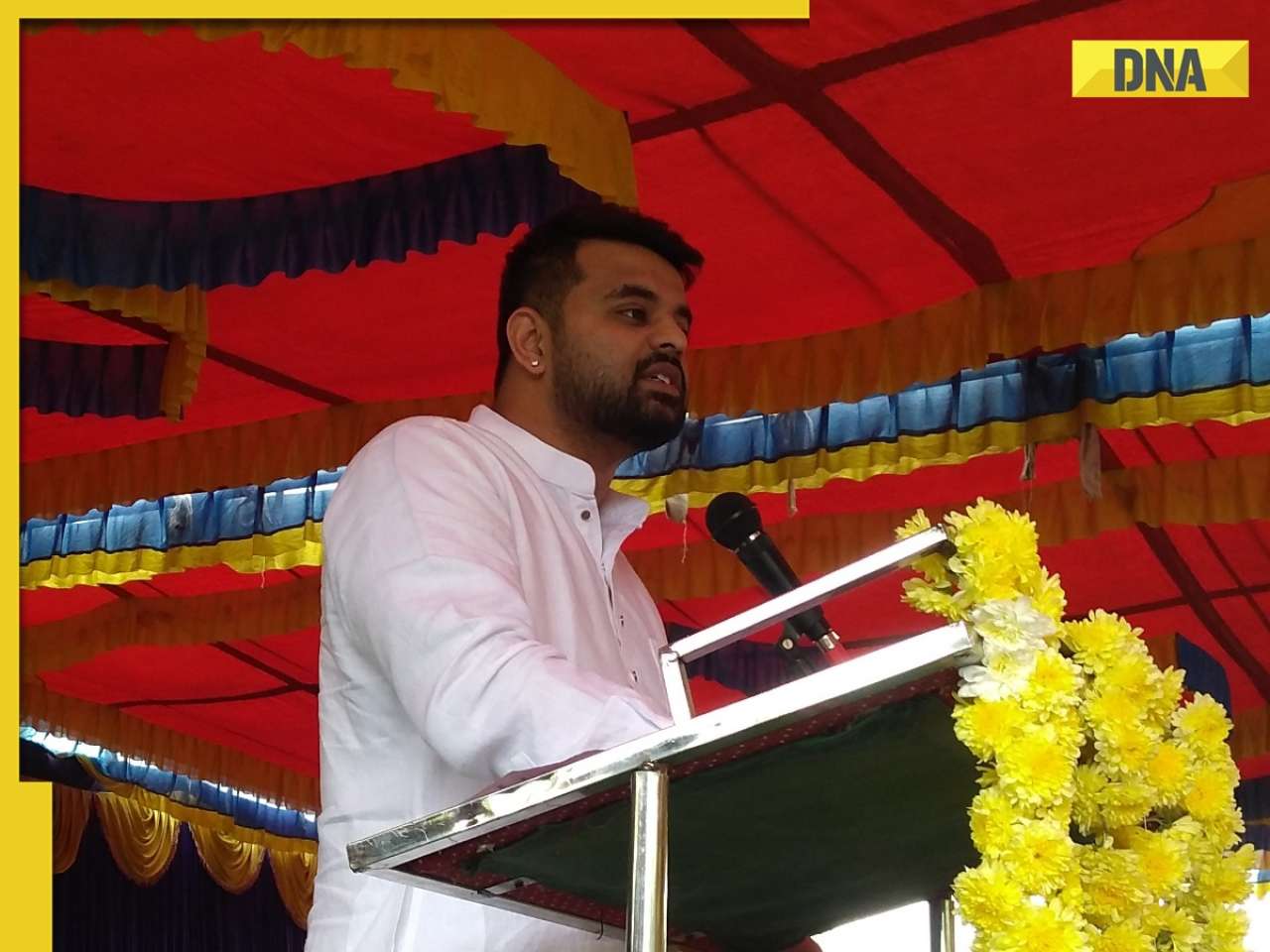























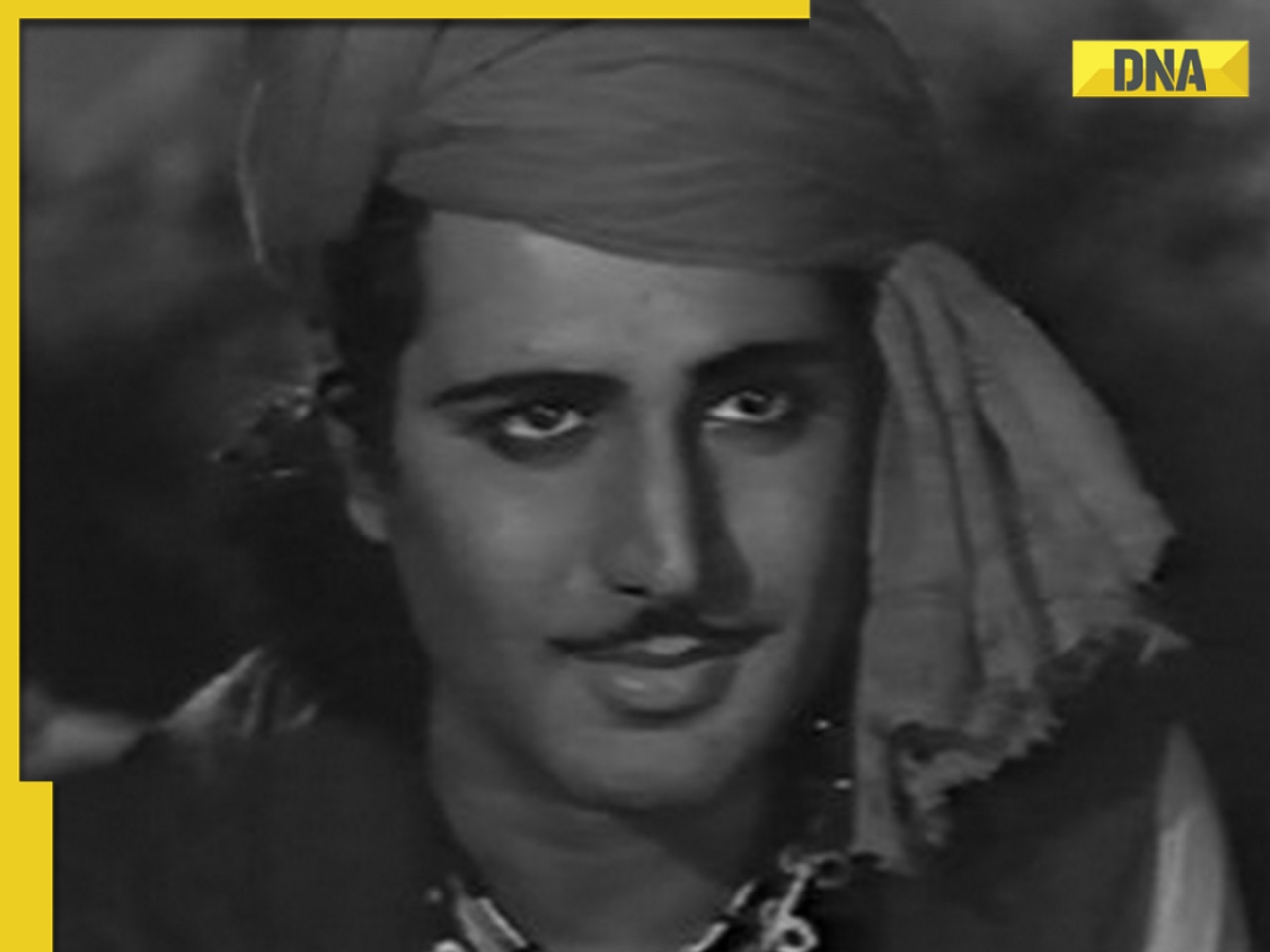
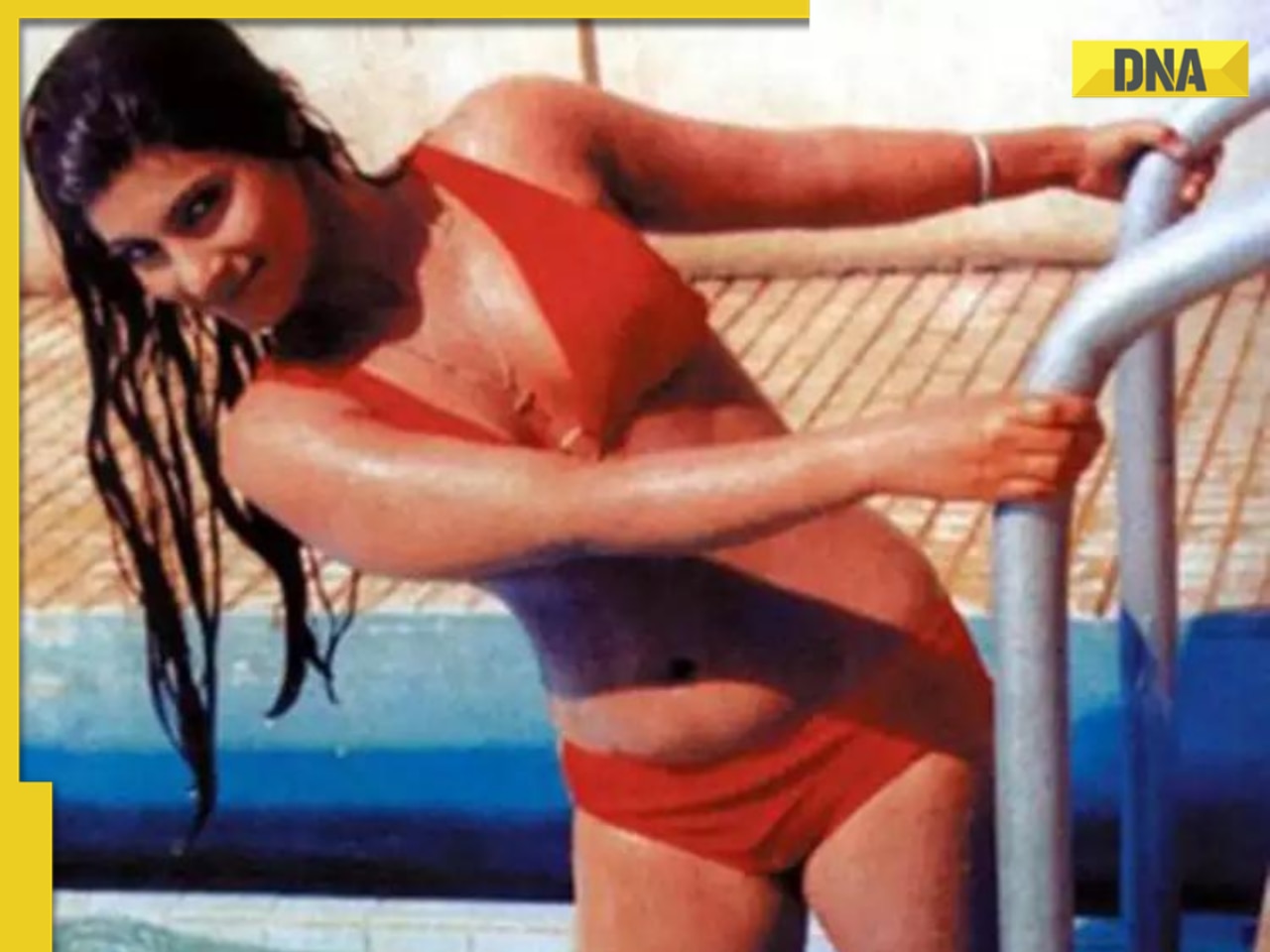















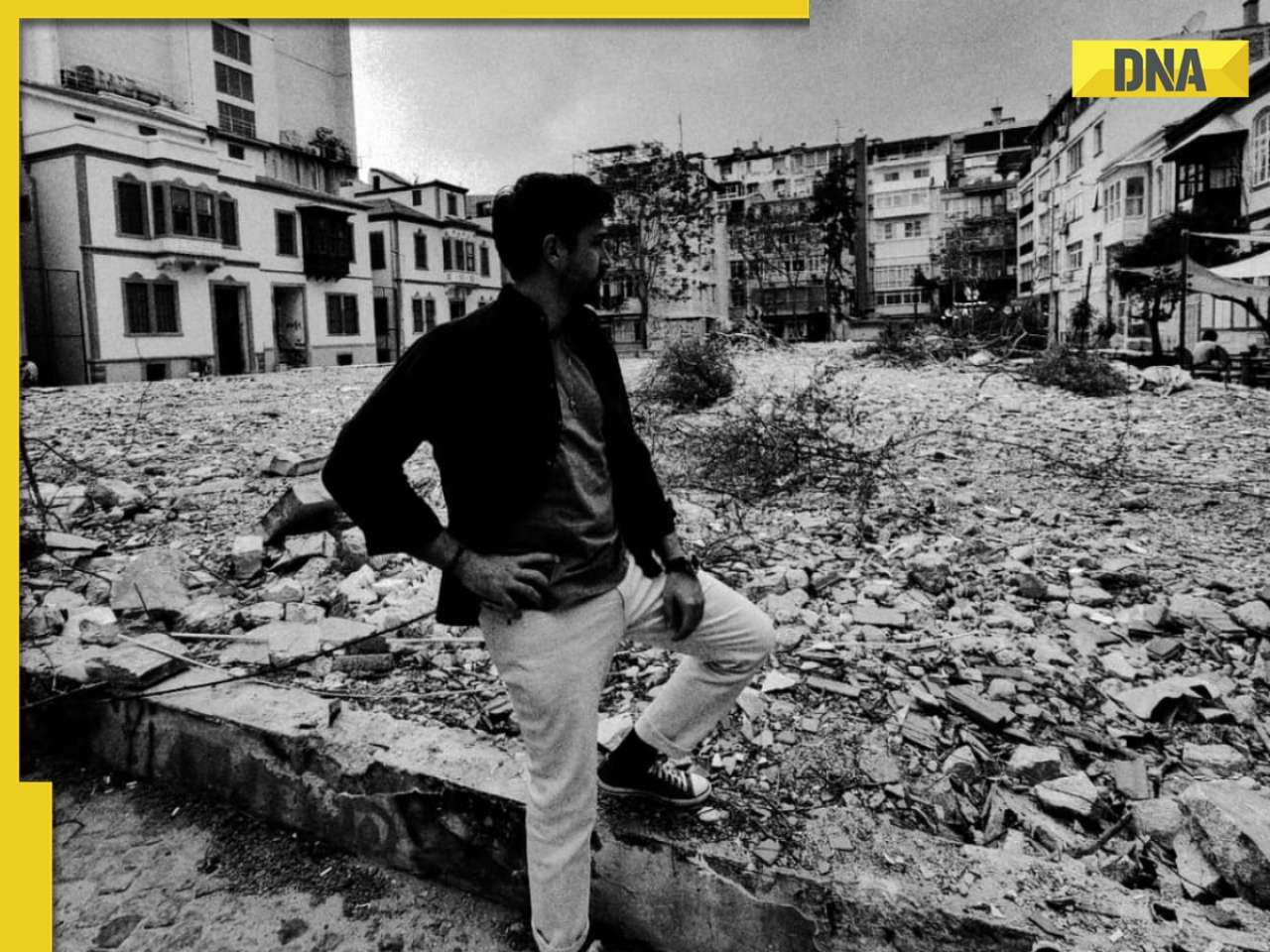


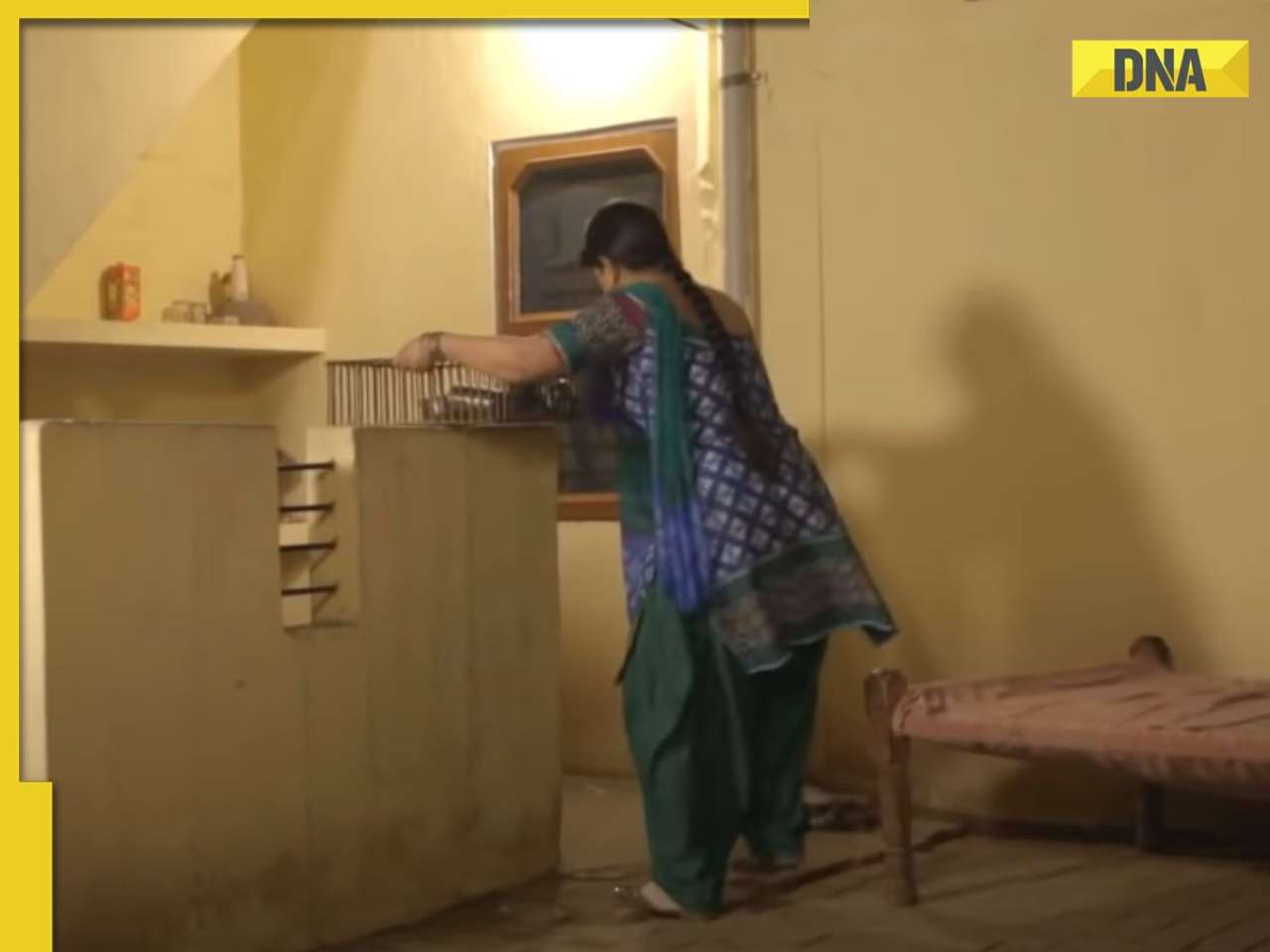
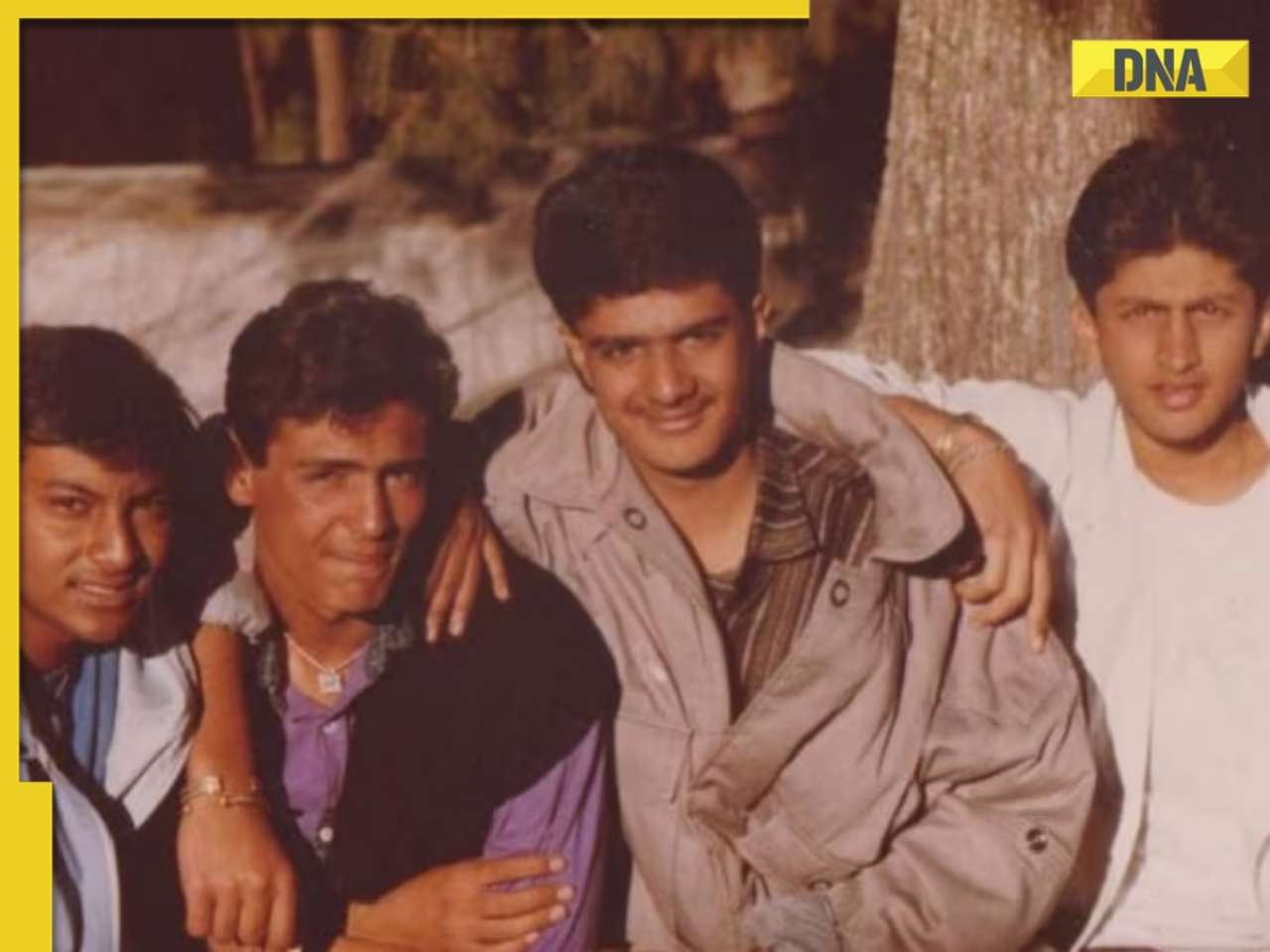

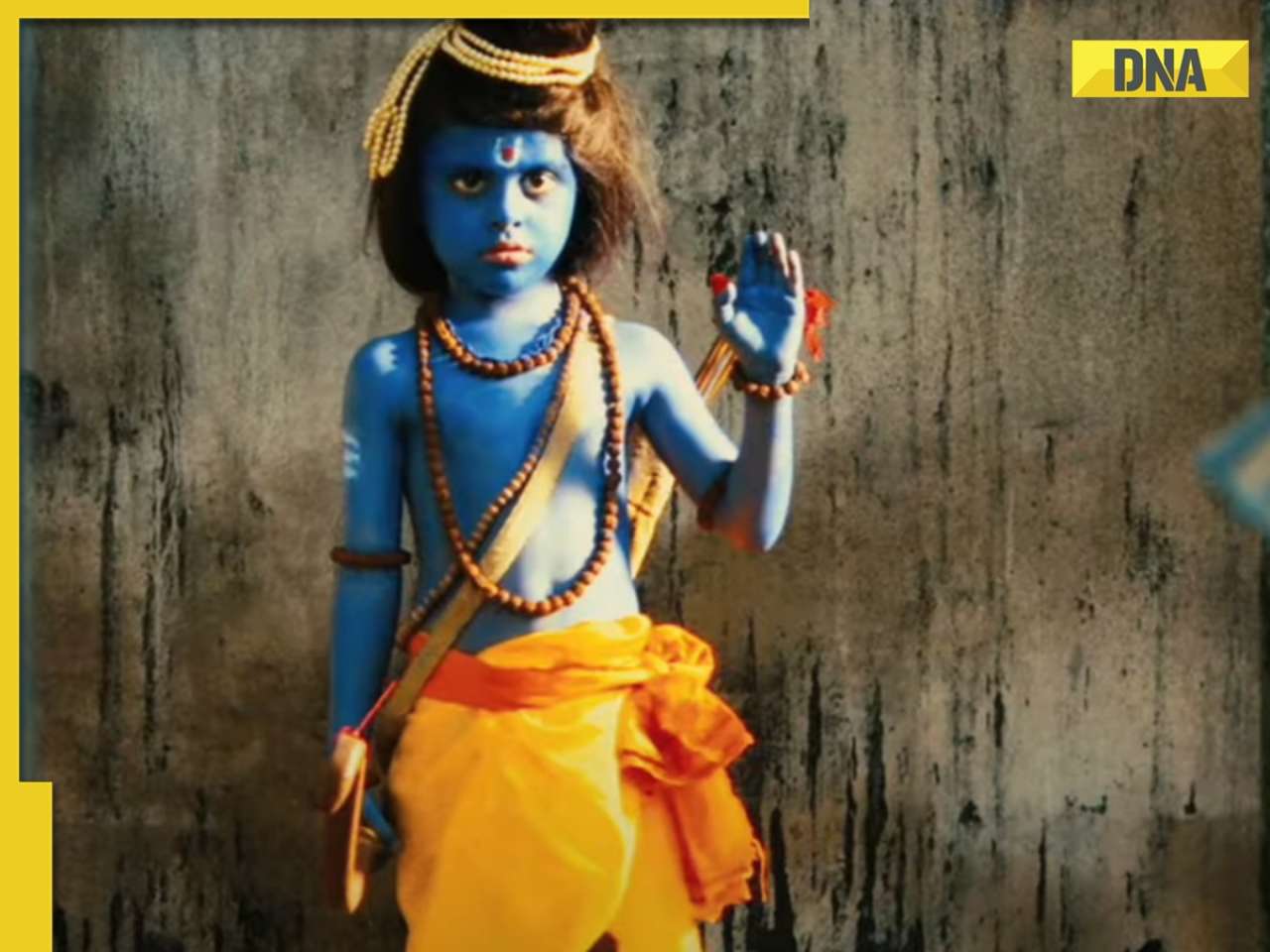
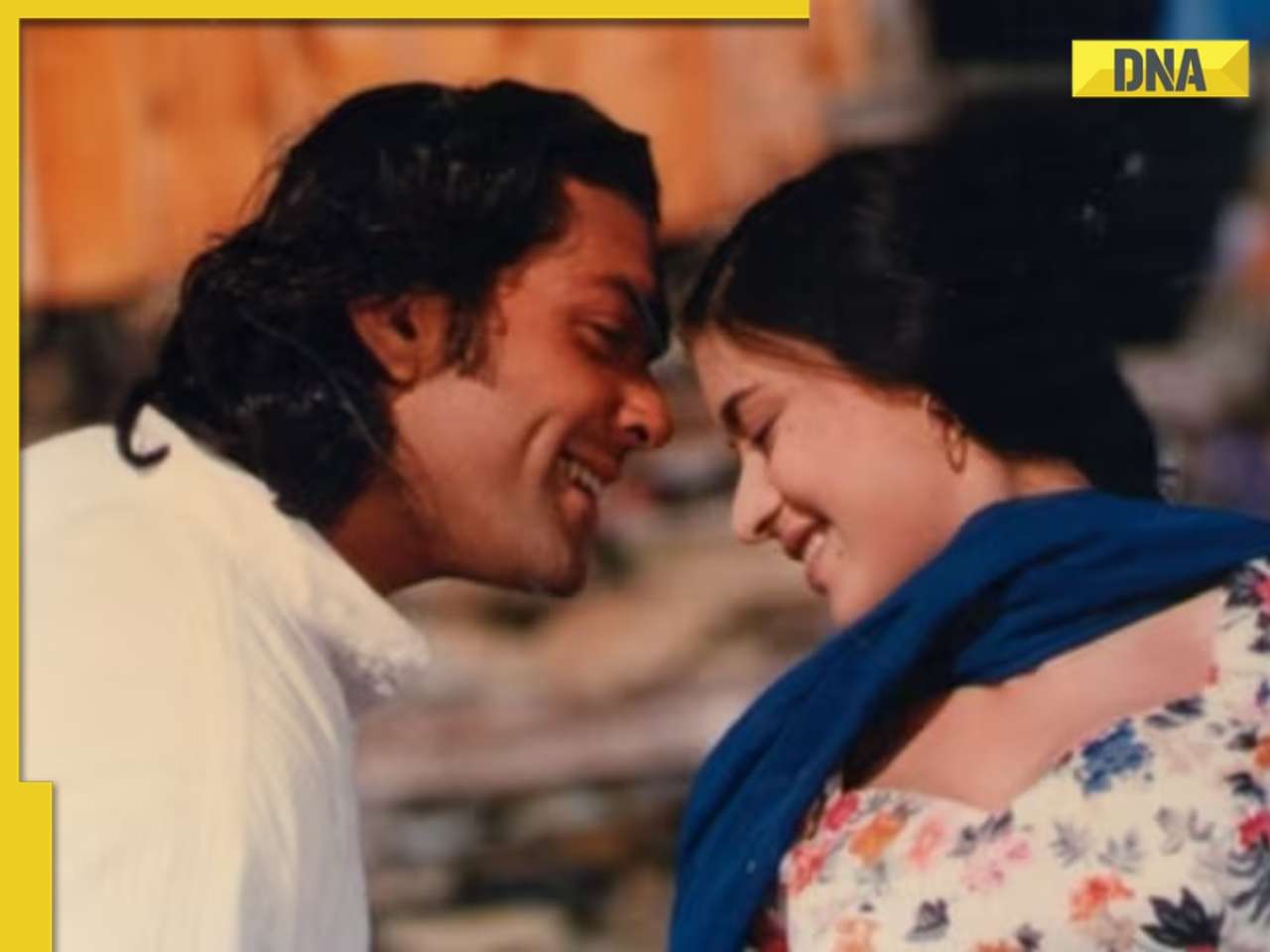

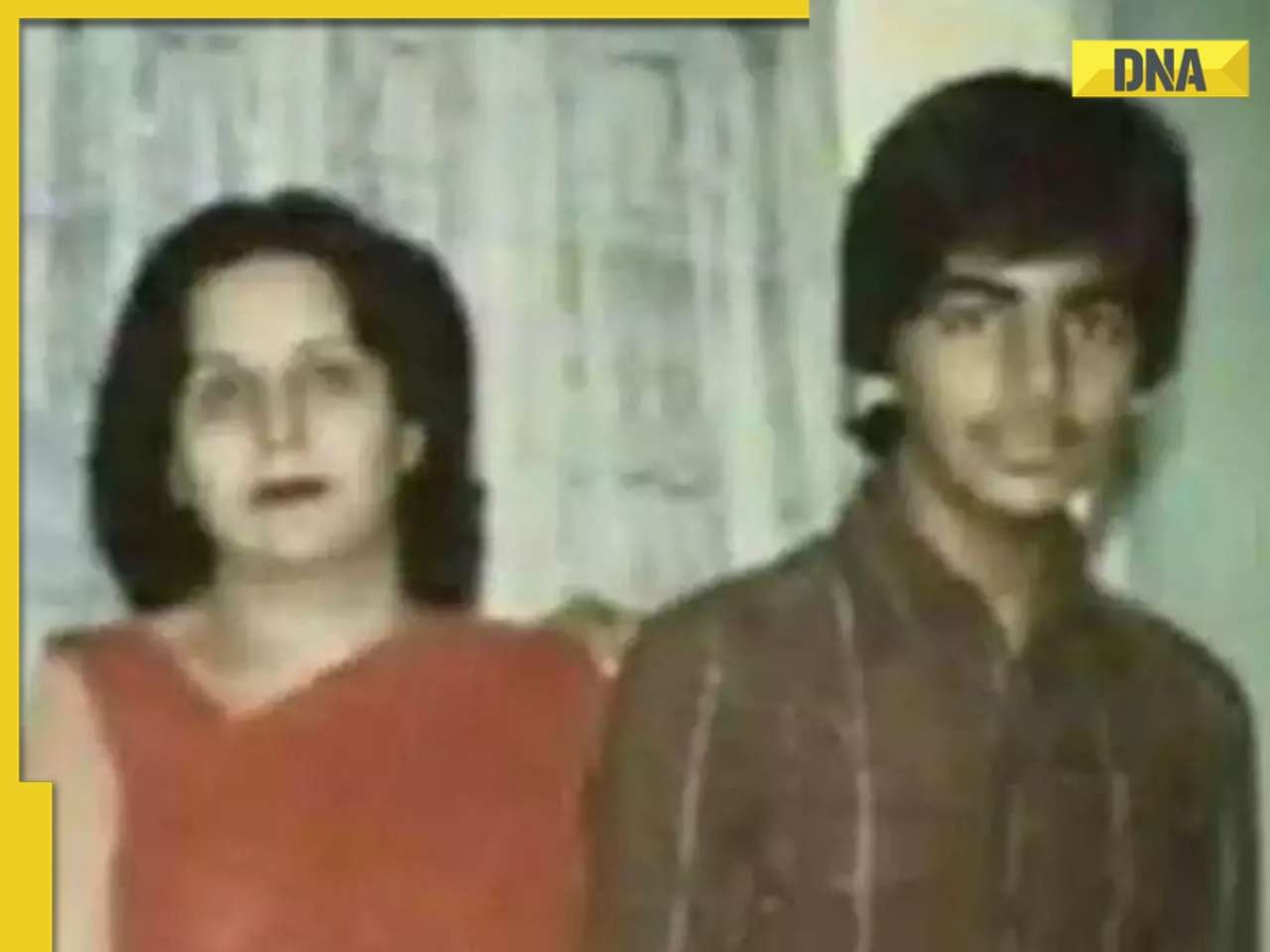




)
)
)
)
)
)